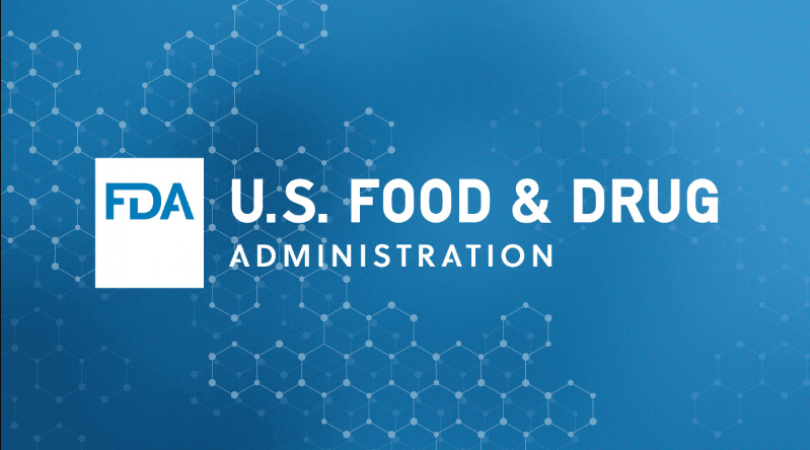
Washington: This year, the Food and Drug Administration's controversial expedited route came under scrutiny from Congress, government watchdogs and some of the agency's leaders. As a result, the approval of expedited drugs declined.
The FDA's drug center has granted just 10 expedited approvals with less than a month in the year since, which is less than the total in the past five years, when the program's use peaked.
The program allows the introduction of drugs into the United States based on encouraging preliminary results, before they have been demonstrated to benefit patients.
Also Read: Asia's stocks decline as China eases many COVID restrictions
Academics have expressed discontent over the practice's contribution to the overproduction of expensive, unproven drugs, particularly for cancer. However, the speedy approval of a highly controversial Alzheimer's drug last year sparked fresh criticism, leading Congress and federal inspectors to investigate the FDA's decision-making.
The program's flaws were recently exposed by an FDA hearing that aimed to rescind approval for a drug for premature birth that had not been proven effective. Since a follow-up study showed that Makena didn't help mothers or babies, the FDA has been working to remove the drug from the market for more than two years. The manufacturer has declined to assist.
In response to the most recent controversy, FDA leaders have taken unprecedented actions that suggest a tough stance on accelerated approvals: pressuring drug makers to remove a growing list of unproven uses for drugs and when companies protest Urging Congress to expedite removal from the new authority.
In the opinion of Yale University researcher Dr. Reshma Ramachandran, who favors Congressional reforms, a recent investigation into the accelerated approval process "certainly made them pause and take a different path." Ramachandran and other critics argue that it is still too early to determine whether the FDA's recent actions signal a long-term policy change.
The FDA remains committed to ensuring the integrity of the program, according to a spokeswoman, who said the agency's position on accelerated approval "remains the same." The FDA is exercising "every authority at our disposal" to ensure that drugmakers conduct confirmatory studies as quickly as possible after approval, he continued.
The accelerated approval program, which was established in 1992, is credited with hastening the dissemination of early cancer and HIV discoveries. That method has been used to approve about 300 drugs, about half of them in the past five years.
However, scientists and government watchdogs have repeatedly called attention to issues with FDA oversight, such as delays in quickly removing drugs with insufficient or unsuccessful confirmatory studies. According to recent findings from federal inspectors, 40% of accelerated approvals were found to have incomplete confirmation studies.
The situation has started changing. The FDA has successfully urged drug makers to revoke more than 20 accelerated drug approvals, mostly for cancer treatments, that failed to demonstrate a benefit in less than two years. In the history of the program, this accounts for more than half of all withdrawals.
The FDA's cancer chief, Dr. Rick Pajdur, has called the effort to rescind the approval his "jihad."
Also Read:Markets turned volatile after RBI hiked repo rate by 35 bps
Recently, several drug companies refused the FDA's request to voluntarily recall their products. This has raised the prospect of additional lengthy public hearings to remove the force, which Pazdur called "a nightmare".
One of the pieces of legislation that lawmakers in Congress are expected to include in a big year-end spending bill is the ability to demand that drugmakers complete their studies before approval. If approved, this would represent the most significant change in the 30-year history of accelerated approval.
At a recent cancer conference, FDA Commissioner Robert Califf said "we need more teeth" to start confirmatory testing before accelerated approval. "Once approval is granted, stopping marketers is very challenging."
The strategy is currently being tested by FDA regulators. The agency is advising pharmaceutical companies more often that their confirmatory studies should already be in progress before approval.
On a recent call with investors to discuss the company's plans for an upcoming cancer drug, startup Chimerix CEO Mike Sherman said, "We know the FDA has raised the bar for accelerated approval, so we'd like additional clarity." are demanding. their position."
Smaller pharmaceutical companies that often rely on quick approvals to establish a market presence before raising additional funding may find themselves at a disadvantage as a result of the higher bar.
Undoubtedly, a number of factors have an impact on FDA approval trends. The agency's total number of novel drugs is down significantly this year, from 50 last year to about 30 this year.
Even the most recent peak in accelerated pathway approvals (45 in 2020) reflected a number of trends.
Also Read:RBI MPC Live Updates: Repo rate hiked by 35 bps
Drug companies are actively pursuing a new class of "immunotherapies" that aid the body in identifying and combating cancer. Since 2015, the FDA has approved more than 80 uses for those medications, increasing annual accelerated approval totals